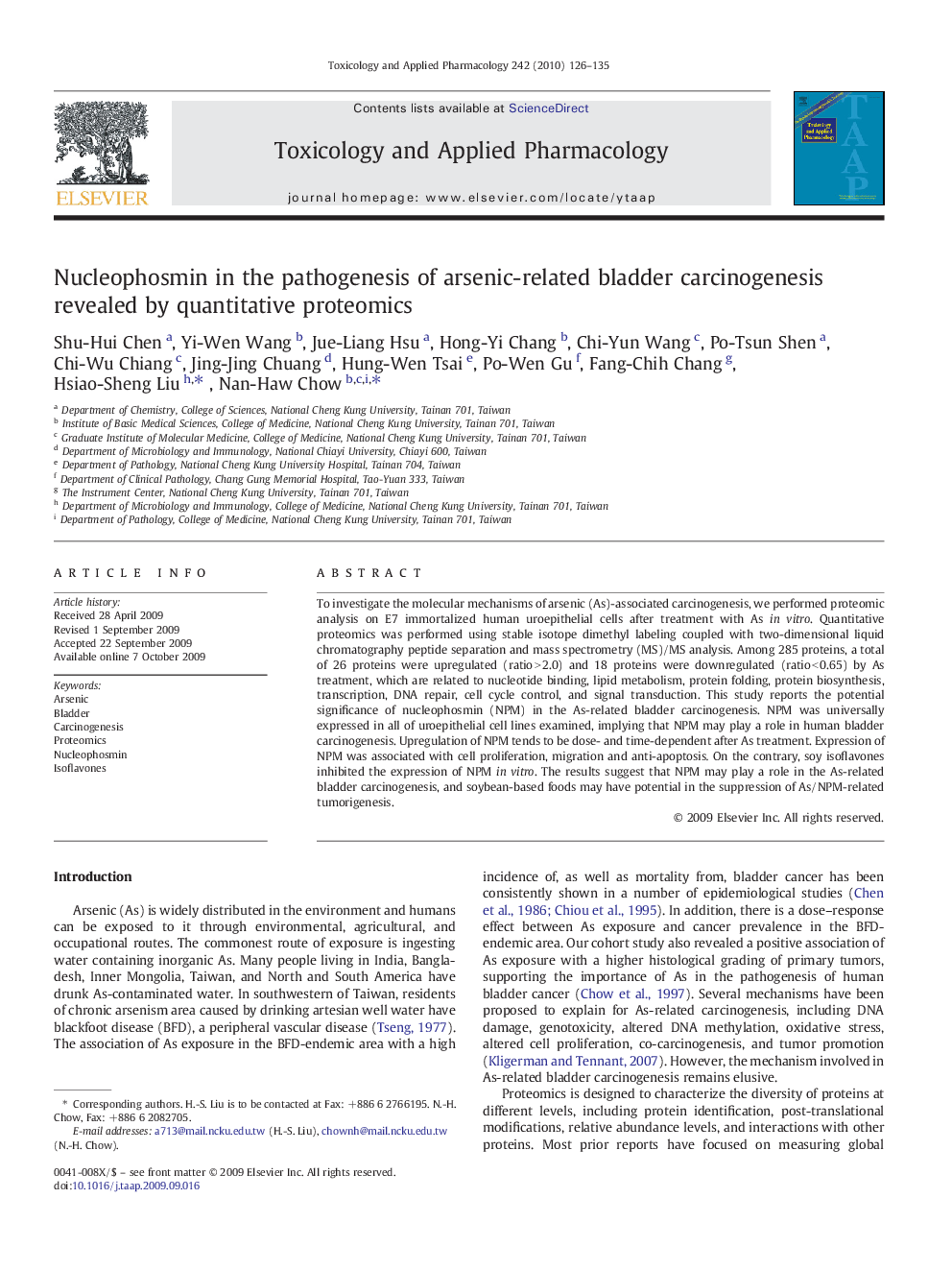| کد مقاله | کد نشریه | سال انتشار | مقاله انگلیسی | نسخه تمام متن |
|---|---|---|---|---|
| 2569842 | 1128554 | 2010 | 10 صفحه PDF | دانلود رایگان |

To investigate the molecular mechanisms of arsenic (As)-associated carcinogenesis, we performed proteomic analysis on E7 immortalized human uroepithelial cells after treatment with As in vitro. Quantitative proteomics was performed using stable isotope dimethyl labeling coupled with two-dimensional liquid chromatography peptide separation and mass spectrometry (MS)/MS analysis. Among 285 proteins, a total of 26 proteins were upregulated (ratio > 2.0) and 18 proteins were downregulated (ratio < 0.65) by As treatment, which are related to nucleotide binding, lipid metabolism, protein folding, protein biosynthesis, transcription, DNA repair, cell cycle control, and signal transduction. This study reports the potential significance of nucleophosmin (NPM) in the As-related bladder carcinogenesis. NPM was universally expressed in all of uroepithelial cell lines examined, implying that NPM may play a role in human bladder carcinogenesis. Upregulation of NPM tends to be dose- and time-dependent after As treatment. Expression of NPM was associated with cell proliferation, migration and anti-apoptosis. On the contrary, soy isoflavones inhibited the expression of NPM in vitro. The results suggest that NPM may play a role in the As-related bladder carcinogenesis, and soybean-based foods may have potential in the suppression of As/NPM-related tumorigenesis.
Journal: Toxicology and Applied Pharmacology - Volume 242, Issue 2, 15 January 2010, Pages 126–135